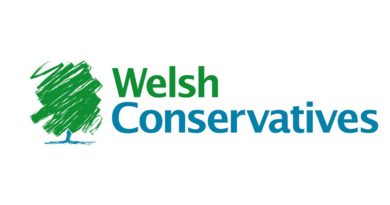HISTORIC PRESS RELEASE : In Britain Gordon Brown sets out new vision for civic patriotism – Chancellor aims for £1 billion more to be given to charity [January 2000]
The press release issued by 9 February 2000.
Chancellor aims for £1 billion more to be given to charity
Measures to encourage more people and companies to give more money and time to voluntary action were set out today by the Chancellor Gordon Brown in a speech “A Civic Patriotism” at the NCVO annual conference in London today.
The Chancellor outlined the case for a “new and stronger relationship between individuals, communities and government” in a four point plan. The plan includes:
- tax changes to promote individual giving;
- tax changes to promote corporate donations;
- measures to promote the giving of time and volunteering; and
- measures to develop a new role for voluntary organisations.
The Chancellor said:
“I want to outline the case for a new and stronger relationship between individual, community and government – for the renewal of British civic society – or a great British society which not only defines the importance of voluntary organisations, but engenders a civic patriotism.
“I want to propose a new financial foundation for this civic renewal – a modern financial foundation for charitable, voluntary and community action.”
The Chancellor confirmed his pledge to “put charities on a firm foundation for the future.” He encouraged charities to exploit the new tax regime which makes it easier for individuals and companies, to give with the aim – “millions more giving so that by the end of the year 2002, as a people, have given a £1 billion more.”
But encouraging more people to give more time rather than money was an important part of the strategy. The Chancellor said:
“Our next task is to encourage new volunteers, create new volunteering opportunities and to build networks that match those who can give help to those which need help.”
Work is already underway working with charities and the voluntary sector on key initiatives but the Chancellor announced that:
“To advance both and the giving of money and time, we will bring together all relevant parties – the voluntary sector, key government departments, business leaders, employees’ representatives and media experts – to examine proposals for a national campaign based on a partnership with the voluntary sector.”
The Chancellor stressed the importance of the voluntary community and charitable organisations’ involvement in projects like Sure Start and the proposed new children’s fund. He said:
“These are partnerships in which the voluntary community and charitable organisations can take the lead, using their local knowledge and skill to put their ideas and projects to work.
To encourage the social enterprise sector in Britain, which can play a vital role in the economic regeneration of deprived communities the Chancellor also announced the setting up of a Social Investment Taskforce.
The Chancellor made clear he wanted to see “more investment in the UK in social enterprises – projects which have social objectives, and are not simply profit orientated.”
The Taskforce will look at:
- the case for social investment and a social investment fund;
- identify barriers to the further development of this field; and
- propose solutions and models for the future development of social investment.
It will report by autumn 2000.



